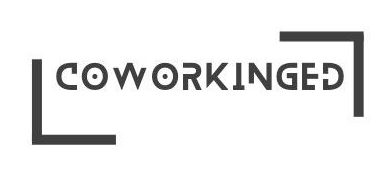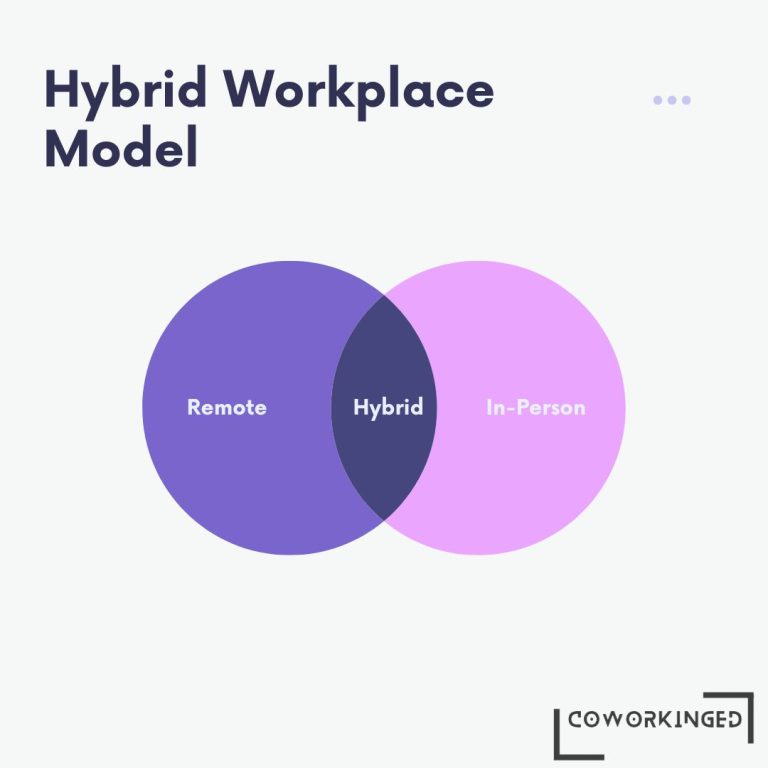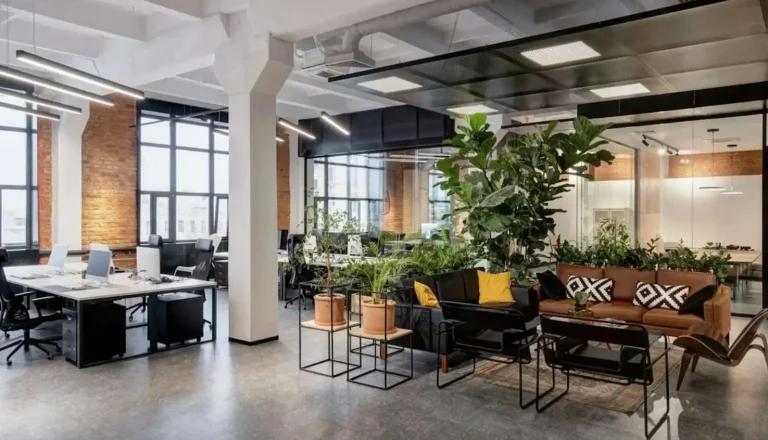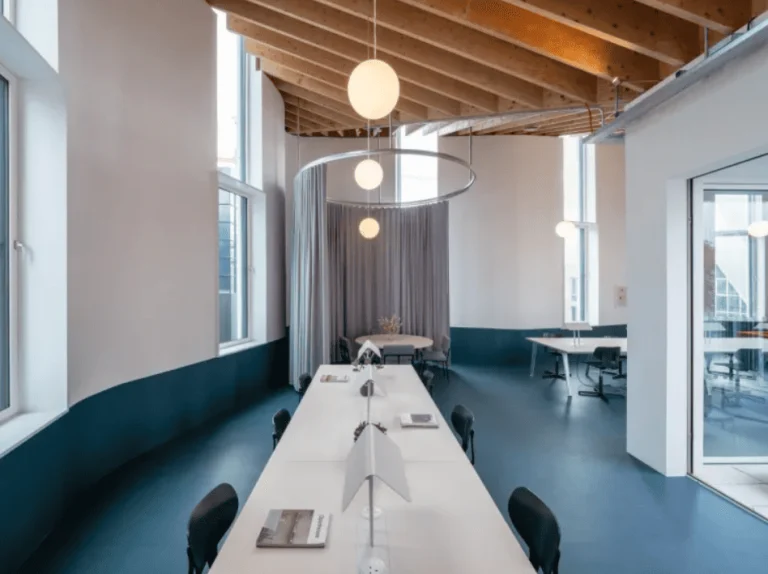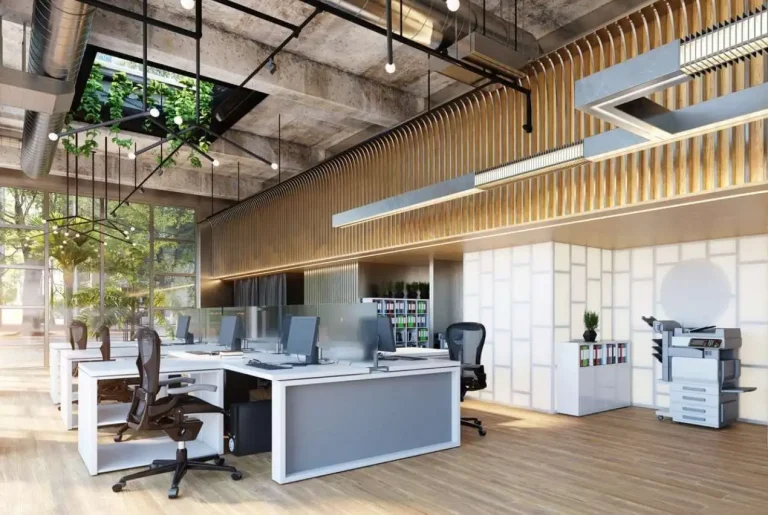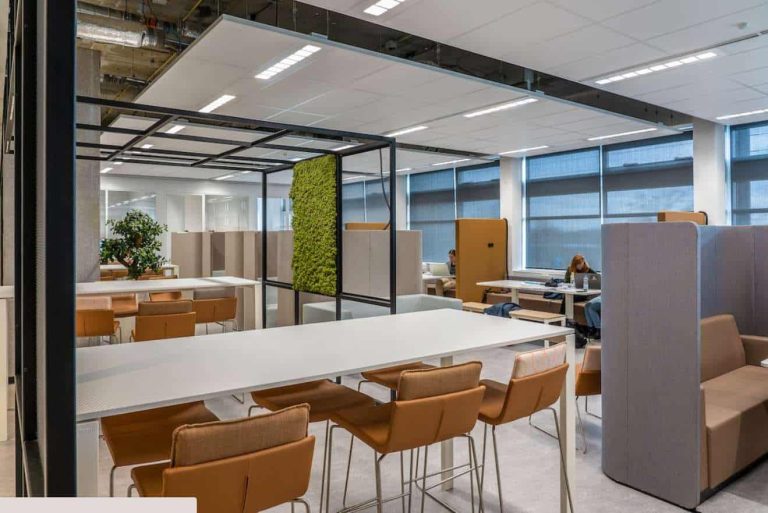What is a Managed office space?
Managed office spaces are gaining popularity in the business landscape, offering a hassle-free way to access professional work environments without the usual complexities and expenses. These spaces come with a host of services and amenities, including receptionists, internet access, and administrative support.
In this article, we’ll explore the concept of managed office spaces, explore the advantages they bring to businesses, and provide guidance on finding the ideal managed office space tailored to your specific needs.

Managed Office Space – Simple Definition
Managed offices stand apart from flexible workspaces as individually branded, exclusive office environments. They offer a customized workspace solution arranged and managed by third-party providers, blending the flexibility and cost-efficiency of shared workspaces with the advantages of branding, heightened control, and enhanced security.
Traditional Office Space vs. Managed Offices
| Aspect | Traditional Office Space | Managed Offices |
|---|---|---|
| Ownership | Singular (Owned/Leased) | Shared (Third-party) |
| Responsibility | Full tenant responsibility | Managed by provider |
| Customization | Limited layout flexibility | Tailored to needs |
| Lease Terms | Long-term commitments | Short-term agreements |
| Cost Structure | Higher upfront costs | Cost-efficient |
Managed Offices vs. Other Flexible Workspace Solutions
| Aspect | Managed Offices | Coworking Spaces | Virtual Offices |
|---|---|---|---|
| Branding & Identity | Allows personalized branding | Shared identity | Provides professional address |
| Control & Privacy | Greater control and privacy | Shared environment | No dedicated physical workspace |
| Security | Enhanced security measures | Varied security levels | No physical presence |
| Cost Efficiency | Cost-effective due to sharing | Economical for short terms | Economical for short-term |
What are the Benefits of Managed Office Spaces?
Managed office spaces are thoughtfully designed to offer businesses a convenient and pleasant work environment. They come equipped with a variety of features and amenities geared towards enhancing productivity and well-being. Some of the most common amenities found in managed office space solutions include:
- Complimentary Beverages: Many managed office spaces provide free beverages like coffee, tea, and water to keep employees energized and hydrated throughout the day.
- High-Speed Internet: Reliable high-speed internet access is essential for business operations, and most managed office spaces offer fast and dependable internet connectivity to ensure uninterrupted work.
- Free Printing: Businesses can save on printing costs as many managed office spaces include complimentary printing services in their packages.
- Personal Concierge: Some managed office spaces provide a personal concierge service, assisting businesses with tasks such as scheduling meetings, making travel arrangements, and handling administrative duties.
- Power Backup: In regions with frequent power interruptions like India, managed office spaces often have backup generators to ensure uninterrupted operations during outages.
- Breakout Area: These dedicated spaces allow employees to take breaks, relax, and socialize. They may include comfortable seating and recreational amenities for a quick recharge.
- Meeting Rooms: Managed office spaces offer well-equipped meeting rooms that can be reserved for various business needs, accommodating small or large groups with modern technology.
- Calling Booths: Private phone booths and soundproof areas are available in some managed office spaces, offering quiet spaces for phone calls without disruptions.
- 24/7 Access: Many managed office spaces provide round-the-clock access to the building and offices, allowing businesses to work on their schedules, which is especially useful for those operating outside regular business hours.
These features and amenities are tailored to enhance business efficiency and comfort, enabling companies to concentrate on their growth and success.
How to Choose the Perfect Managed Office Space for Your Business
Selecting the ideal managed office space may seem like a complex task, but it can be simplified by keeping some key factors in mind. Here are the steps to guide you in finding the right managed office space for your business:
1. Define Your Space Needs: Start by understanding the kind of workspace your business requires. Consider the number of employees, the nature of your work, and the equipment needed for smooth operations.
2. Location Matters: Take a close look at the office space’s location. Consider how it aligns with your target market, workforce, and vital elements like accessibility, parking, and local amenities.
3. Amenities and Services: Seek out a space that offers the necessary amenities and services to enhance your business efficiency. This could include high-speed internet, well-equipped meeting rooms, and reliable administrative support.
4. Prioritize Flexibility: Look for a space that offers flexible lease terms, such as month-to-month or short-term agreements. This flexibility allows you to adapt your workspace as your business evolves.
5. Cost Considerations: Compare the prices of various managed office spaces to ensure you’re getting the best value for your investment. Take into account factors like rent, additional services, and any potential extras such as parking or utility costs.
6. Embrace Community and Culture: Search for a space that resonates with your company’s culture and values. It should provide an environment where you can foster a community of like-minded professionals and create a sense of belonging.
Frequently Asked Questions
1. What is the difference between managed and serviced office space?
Managed office space is typically dedicated to a single company and offers more control and branding options. Serviced office space is shared and managed by a provider, offering ready-to-use facilities and services to multiple businesses.
2. What is the difference between coworking and managed office space?
Coworking spaces are shared work environments, often with flexible seating arrangements, fostering collaboration. Managed office spaces are dedicated offices managed by a third party, offering more privacy and customization options.
3. What is the difference between managed office space and traditional office space?
Managed office spaces are typically fully managed by a third party, providing services and flexibility. Traditional office spaces are often leased or owned by a single company, with full responsibility for management and maintenance.
4. What are the examples of managed office space?
Examples of managed office space providers include Regus, WeWork, and Knotel. These companies offer fully managed office spaces with various amenities and flexible lease terms to accommodate different business needs.
Final Words
Managed office spaces offer businesses flexibility, amenities, and cost-efficiency, making them an attractive alternative to traditional office spaces. Choosing the right managed office space involves assessing your needs, considering location, amenities, and costs, and aligning with your company’s culture. It’s a modern solution for businesses seeking convenience and productivity.
